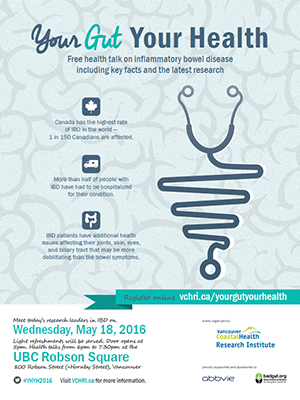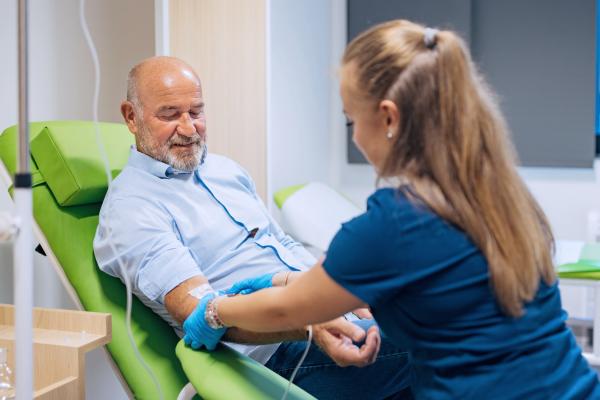
Hope can be found through information at events like Your Gut, Your Health.
Proud Mount Pleasant resident Mavreen David has felt a greater appreciation for life over the past seven years – she’s been experiencing remission from the intense pain and discomfort of active Crohn’s disease. The 38-year-old local photographer has suffered from the chronic inflammatory bowel disease for 26 years, complicated by the arthritis and depression that the condition has caused. She has undergone multiple surgeries and a gamut of treatments to make life more bearable. Despite her challenges, she feels her story is one that may give patients hope.
“I think that people get the diagnosis for Crohn’s and it’s kind of bleak because there’s no known cause or cure; they consider it a life sentence and it really gets them down,” says David. “However, I’ve also seen individuals with the severest cases of Crohn’s and Colitis and they fight so hard to have good health and good quality of life.”

“I think the reality is: if you get proactive, there is a great life to be had. But you really have to work hard at it and you have to figure out what your formula is to get at the best health possible.”
David will be sharing her message at Your Gut, Your Health, a Vancouver Coastal Health Research Institute (VCHRI)-sponsored free event happening May 18th. The event will provide information about inflammatory bowel disease (IBD), including key facts and the latest research, and offers the public an opportunity to meet with experts in the field.
One of those experts, VCHRI scientist and gastroenterologist Dr. Bill Salh, remembers working with patients early in his career and the limited treatments that were available at the time.

“The introduction of biologics – antibody therapies that target particular pro-inflammatory proteins and migrating cells, thereby blocking the process that causes chronic inflammation in the gut – has really changed how we manage these patients and how they feel,” he adds. “For me, it’s a very gratifying experience to see that these drugs work for Crohn’s disease and ulcerative colitis as well as they do.”
“People attending Your Gut, Your Health will get an overview of the therapies that have gone from the bench to bedside and hence routine care,” shares Dr. Salh. “Patients should come to learn about these and other emerging therapies and how to access them, as well as involving their family physicians in the process.”
Similarly, David, who has participated in clinical trials and studies, strongly encourages people with IBD to learn more about their disease and their body.
“I am one of those people who’s always found that the more information I have about my disease, the better equipped I am to deal with it and the better advocate I am for myself,” she says. “I’m a big proponent of being your own primary care giver.”
David talks about Crohn’s being the kind of disease requiring a three-pronged approach: first, have a great medical professional on your side; second, practice great self-care to stay in generally good health; and third, have a great support system around you of friends and family.
She hopes that people suffering from IBD continue to learn more about their health, including through events such as Your Gut, Your Health.
“Staying informed is the best way to arm yourself in this kind of fight.”
Facts about inflammatory bowel disease (IBD)1
- IBD is a group of disorders that include Crohn’s disease and ulcerative colitis
- There is no cure for IBD, only treatments that don’t always work
- 1 in 150 Canadians has IBD – one of the highest rates in the world
- More than half of people with IBD have been hospitalized for the condition
- IBD patients have additional health issues affecting their joints, skin, eyes, and biliary tract that may be more debilitating than the bowel symptoms.
1 Crohn’s and Colitis Foundation of Canada



